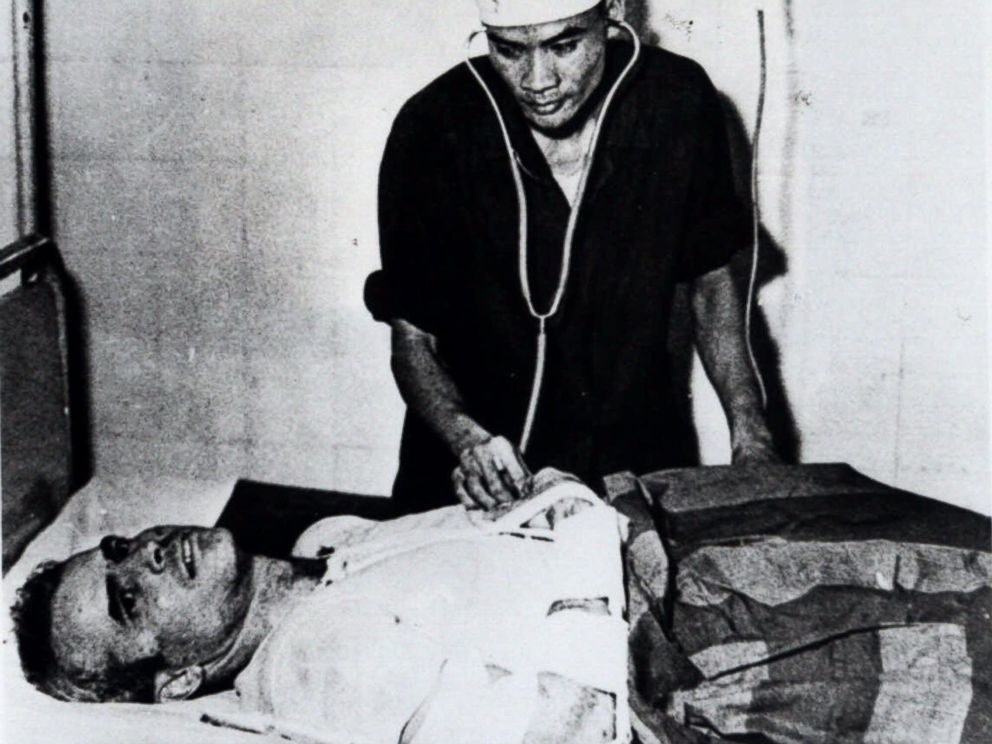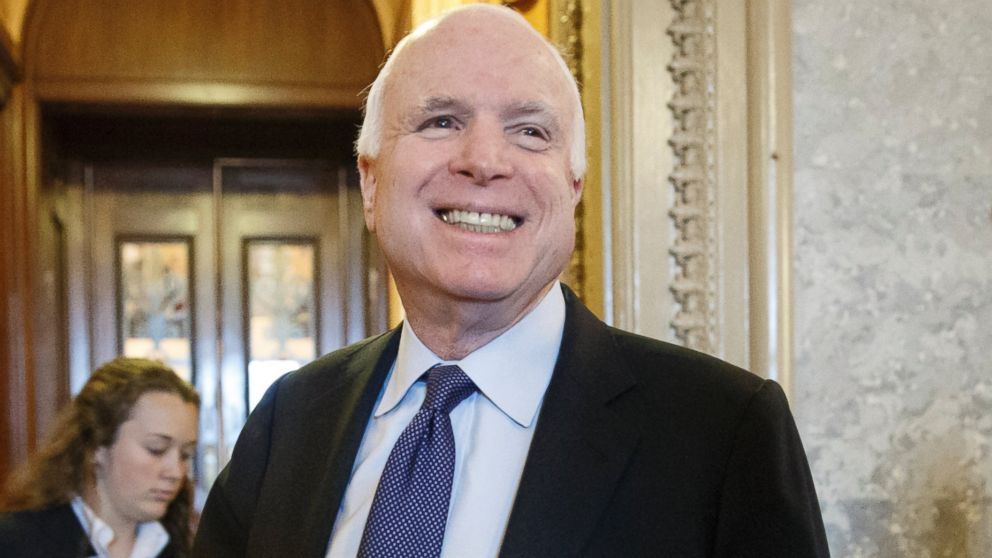What John McCain Went Through as a POW
— -- Donald Trump sparked a new political controversy this past weekend when he questioned whether Sen. John McCain could be described as a "war hero," despite spending more than 5 years as a prisoner of war.
Trump's comment at the Family Leadership Council summit in Iowa on Saturday -- "I like people who weren't captured" -- sparked a swift rebuke, including from McCain himself, who broke his silence on Monday, calling on Trump to apologize to military families, especially those of POWs.
Here's a look at what McCain endured during his time in captivity, which began in October 1967, according to an interview with U.S. News shortly after his release.
THE MOMENT OF CAPTURE
McCain’s bomber was hit by a surface-to-air missile on Oct. 26, 1967, destroying the aircraft’s right wing. According to McCain, the plane entered an “inverted, almost straight-down spin,” and he ejected.
But the sheer force of the ejection broke his right leg and both arms, knocking him unconscious, the report said. McCain came to as he landed in a lake, but burdened by heavy equipment, he sank straight to the bottom. Able to kick to the surface momentarily for air, he somehow managed to activate his life preserver with his teeth.
Once he reached the surface, he was pulled ashore by some North Vietnamese, the account said.
IN CAPTIVITY
As his captors tore at his clothes in the wake of the crash, McCain recalls realizing the extent of his injuries. When he noticed the injuries to his right leg –- which he says had fractured at the knee –- one of his captors slammed a rifle butt into his right shoulder, shattering it, the account said. He was then bayoneted in the abdomen and foot.
Over the next few days, he “lapsed from conscious to unconsciousness” while the North Vietnamese interrogated him, he said. “I refused to give them anything except my name, rank, serial number and date of birth,” McCain said in the U.S. News report. “I was in such a bad shape that when they hit me it would knock me unconscious,” he said.
Though initially refusing to give McCain medical treatment, the North Vietnamese, upon discovering that McCain’s father was an admiral in the Navy, decided to give him medical care, according to U.S. News. As word got around of McCain’s imprisonment and his father’s high military rank, several high ranking North Vietnamese officers came to the prison to observe McCain. Vietnamese surgeons operated on McCain’s broken leg, damaging several ligaments in the process. To this day, there is a noticeable limp in McCain’s step.

After receiving less than adequate treatment, McCain says he was moved to a prison camp known as “The Plantation” and locked in a cell with George “Bud” Day and Norris Overly, two Air Force majors. Day, who survived the ordeal, said of McCain: “He was in this great big white case, and his hair was snow white. He just looked like he was absolutely on the verge of death,” the report quoted him as saying.
SOLITARY CONFINEMENT AND TORTURE
When he was moved into solitary confinement in March 1968 and when his father was named commander-in-chief of all US Pacific forces several months later, McCain’s troubles were just beginning. The North Vietnamese hoped to score a propaganda victory by offering McCain an early release. McCain has said he refused the offer on the condition that he would only accept if every man captured before him was released as well. When McCain was brought to the senior North Vietnamese officer -– a man he refers to as “The Cat” –- he refused the offer of an early release yet again.
McCain says his torture began in August of 1968. “For the next four days, I was beaten every two or three hours by different guards. My left arm was broken again and my ribs were cracked,” he said according to U.S. News. The North Vietnamese wanted a confession for crimes committed against the North Vietnamese people. After holding out for four days, McCain, at the point of suicide, agreed to write a confession. Looking back on his decision, McCain reflected “I felt just terrible about it… Every man has his breaking point. I had reached mine,” he said, according to the report.
HIS RELEASE
McCain notes that toward the end of 1969, the treatment which he and his fellow POWs received became more tolerable. He reports of torture ended around October of 1969 and his solitary confinement concluded in March 1970. “Aside from bad situations now and then, 1971 and 1972 was a sort of coasting period,” McCain told U.S. News. After the signing of the Paris Peace Accords on Jan. 27, 1973, putting an end to the Vietnam War, McCain was released on March 14, 1973.
Though he made a recovery, many of McCain's injuries have remained with him -– the combination of a hazardous ejection from his jet, torture and inadequate medical treatment have left him incapable of raising either arm above his shoulders.




